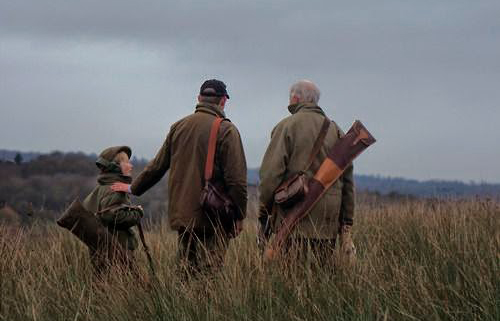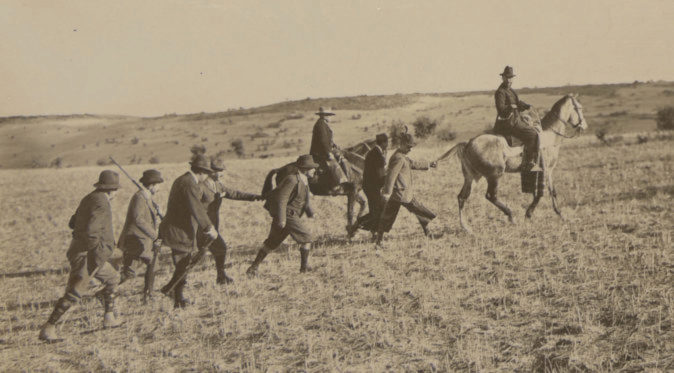
On the hunt
From a historical point of view, during the Middle Ages hunting was any type of hunting, but especially the hunting of those species that were useful in hunting due to their combativeness and savagery, such as wild boars and bears. Later, hunting was an imitation of war, a preparation and training for it. This was the form of hunting, typical of kings and nobles, as presented to us by the authors of the time.
The hunt as it is today considered to last a day began in the late 19th and early 20th centuries and is what we can now call the Spanish hunt. Therefore, the hunt is the main form of big game hunting in Spain.
This noble hunting art is a unique and unequalled way of hunting wild game, and finds its hallmark in the indispensable participation of hunting packs as a differentiating element from the rest of the hunts practiced in the world. We can say that the hunting pack is the undisputed protagonist of hunting and its identifying symbol, which gives it character and authenticity. Without hunting packs there is no hunting. With bad hunting packs there is no hunting either.

In strictly hunting terms, hunting consists of closing off a certain area of land, generally a mountain or pasture, with an appropriate number of hunters (monteros) stationed in places where the animals pass through and naturally escape, to subsequently release various dogs (rehalas or recovas) simultaneously with the aim of beating the area and raising the animals from their bedding to bring them closer to the positions, where the hunters will try to hunt them down as they flee, something that does not always happen, fortunately for everyone.
In a hunt, each person involved in the day, whether hunter, organizer, guard, bidder, muleteer or dog handler, has his share of responsibility and his role during the hunt, so everyone deserves the same respect and consideration, with good coordination between everyone being essential for the day to run smoothly and achieve the expected success. The responsibility of coordinating all the participants in the hunt falls on the figure of the Captain of the hunt.
Finally, it is important to highlight the social, cultural and economic importance of hunting in rural areas where it is practised, as it is an irreplaceable and indispensable source of income for thousands of families. Furthermore, hunting is the best way to preserve our ecosystems and protected or endangered species. It is worth noting that hunting activity in our country generates more than 2.8 billion euros a year and generates more than 50,000 jobs during the season.
Cinegética wants to involve the entire sector in the leading role that this modality has in our country, which is why they will be very present from March 21 to 24, in Hall 12 of Ifema (Madrid).
We are waiting for you!